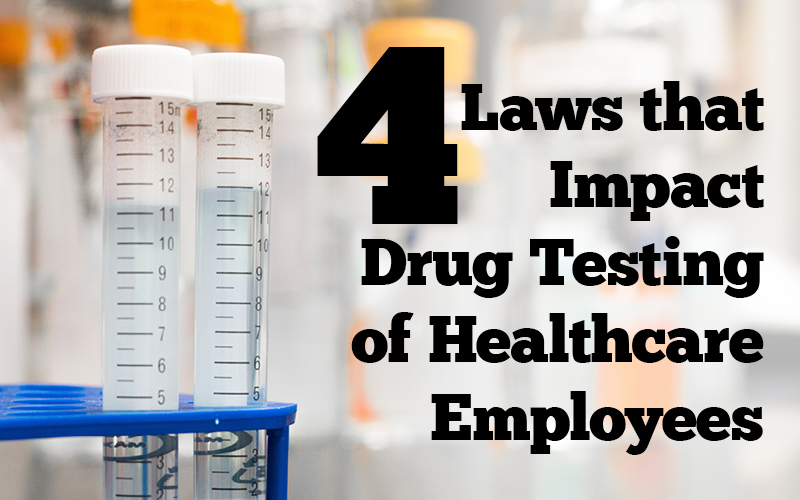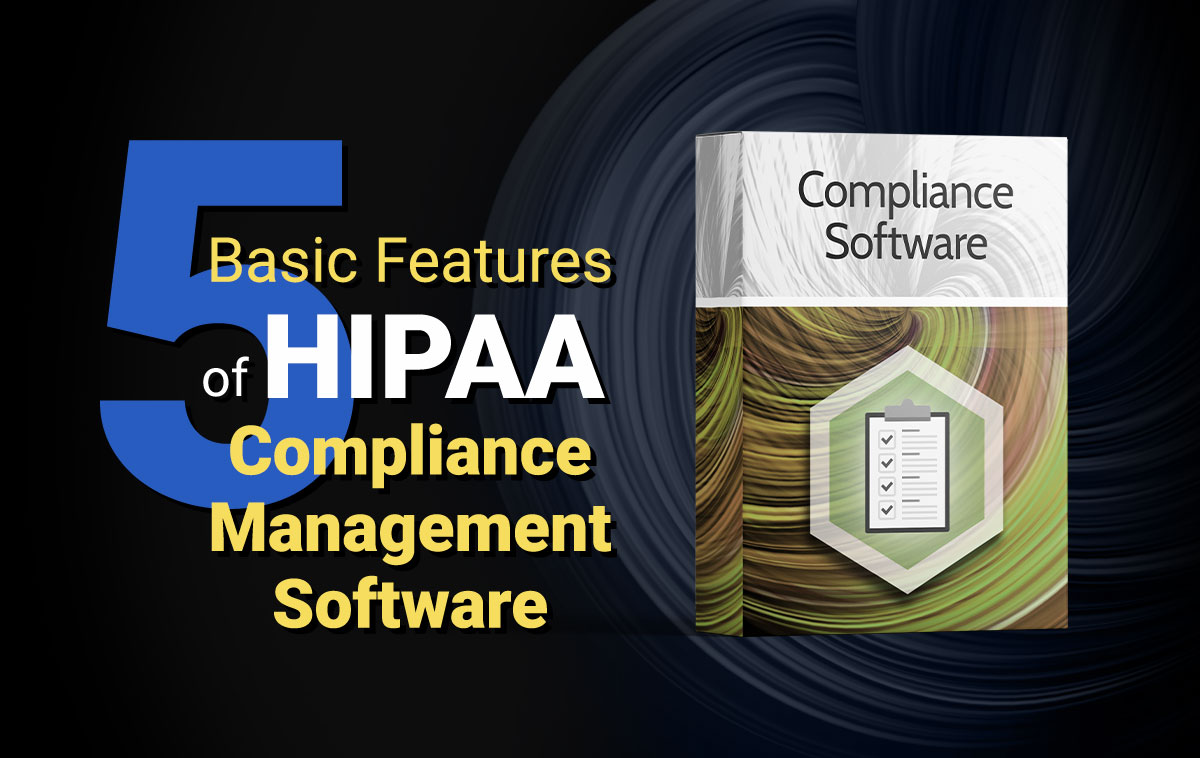4 Laws that Impact Drug Testing of Healthcare Employees
Employees that abuse drugs in the workplace cause major disruptions due to their lack of productivity, poor performance, potential for work place injuries and their negative impact on other employees. In developing and enforcing an effective drug testing policy, compliance with applicable federal and state laws should be a high priority to avoid unnecessary legal liability.
There are different types of drug testing including:
- Pre-Employment testing that occurs after a conditional offer of employment is extended;
- Reasonable Suspicion testing that is based on the employer’s reasonable suspicion that the employee is under the influence of drugs, based on objective and observable factors, such as employee appearance, speech, and/or behavior in the workplace;
- Post-Accident testing following a workplace accident; and
- Random or Periodic Testing during employment.
State laws on drug testing in the workplace vary considerably so it’s important to review and comply with applicable state and local laws. This is especially true when testing for marijuana—an increasing number of states are legalizing medicinal and/or recreational use, along with providing workplace protections for such users. Therefore, compliance with state law is integral to maintaining a valid drug testing program. In addition, compliance with the following federal laws should also be top of mind:
1. Title VII of the Civil Rights Act of 1964 (Title VII)
Title VII applies to employers with 15 or more employees and prohibits discrimination in employment on the basis of race, color, religion, national origin, and sex. Drug testing programs that are applied inconsistently and that target certain employees can form the basis of an unlawful discrimination claim. To avoid this, employers should ensure that drug testing programs are reduced to written policies, that management is trained on these policies and applied consistently.
2. The American with Disabilities Act (ADA)
 The ADA applies to employers with 15 or more employees and prohibits employers from discriminating against a qualified individual with a disability and are generally required to provide reasonable accommodations (after engaging in the interactive process unless an undue hardship or direct threat exception applies). The ADA provides protections for an applicant/ employee’s use of prescription drugs taken under the supervision of a licensed health professional. But it does not protect illegal drug use. For ADA compliance, the employer should not have a blanket drug testing policy that covers legally prescribed medications. For a job applicant or employee that tests positive, the ADA permits the employer to inquire about prescribed drug use. This is an important step before termination or otherwise taking adverse action against the individual. Further, if the individual is taking prescription medication for a qualifying disability, then the employer is required to take part in the interactive process to determine if the individual needs an accommodation to perform the essential functions of the job.
The ADA applies to employers with 15 or more employees and prohibits employers from discriminating against a qualified individual with a disability and are generally required to provide reasonable accommodations (after engaging in the interactive process unless an undue hardship or direct threat exception applies). The ADA provides protections for an applicant/ employee’s use of prescription drugs taken under the supervision of a licensed health professional. But it does not protect illegal drug use. For ADA compliance, the employer should not have a blanket drug testing policy that covers legally prescribed medications. For a job applicant or employee that tests positive, the ADA permits the employer to inquire about prescribed drug use. This is an important step before termination or otherwise taking adverse action against the individual. Further, if the individual is taking prescription medication for a qualifying disability, then the employer is required to take part in the interactive process to determine if the individual needs an accommodation to perform the essential functions of the job.
3. Occupational Safety and Health Administration (OSHA)
OSHA revised its recording and reporting occupational injuries and illnesses regulation that went into effect December 1, 2016. The regulation included anti-retaliation protections to encourage employees to report work-related injuries, among other changes. Specifically, employers are prohibited from discouraging employees from reporting an injury or illness. It also clarifies the requirement that an employer’s procedure for reporting work-related injuries and illnesses must be reasonable and not deter/discourage employees from reporting; and incorporates the existing prohibition on retaliating against employees for reporting work-related injuries or illnesses.
In the preamble of the final rule, OSHA noted that a blanket post-accident drug and alcohol testing policy could be retaliatory:
“Although drug testing of employees may be a reasonable workplace policy in some situations, it is often perceived as an invasion of privacy, so if an injury or illness is very unlikely to have been caused by employee drug use, or if the method of drug testing does not identify impairment but only use at some time in the recent past, requiring the employee to be drug tested may inappropriately deter reporting…OSHA believes the evidence in the rulemaking record shows that blanket post-injury drug testing policies deter proper reporting.”
OSHA made it clear that the final rule allows post-accident drug and alcohol testing, but explained that there should be a reasonable possibility that drug use by the employee is a contributing factor to the reported injury or illness in order for an employer to require drug testing. (Testing required by state worker’s compensation laws is not impacted by this rule). As an example, OSHA noted that it wouldn’t be reasonable to drug-test an employee who reports a bee sting, a repetitive strain injury, or an injury caused by a lack of machine guarding or a machine or tool malfunction.
Based on this rule, blanket requirements for post-accident drug or alcohol testing could be retaliatory and grounds for an OSHA citation. This does not apply to other types of testing such as pre-employment, reasonable suspicion, and random testing.
4. Health Insurance Portability and Accountability Act (HIPAA)
HIPAA, which applies to Covered Entities and Business Associates, requires a release before Protected Health Information (PHI), such as drug testing results, can be provided to the employer. Thus, a HIPAA release must be signed before the employee is subjected to drug testing so that the results are obtained in accordance with HIPAA.
Generally, HIPAA does not apply to an employer and its employee files, even if employee files contain medical records. Even so, it is important to keep employee health-related information confidential and filed in a separate confidential file, separate from the employee’s personnel file.
There are instances when HIPAA will apply, such as when the employer is a Covered Entity and treats job applicant’s or employees as patients. This occurs if the health care provider decides to conduct drug testing in-house— drug testing results are treated as PHI and protected under HIPAA.
For more information on these laws, purchase the Fundamentals Guidebook or sign up for The Fundamentals online course today!









